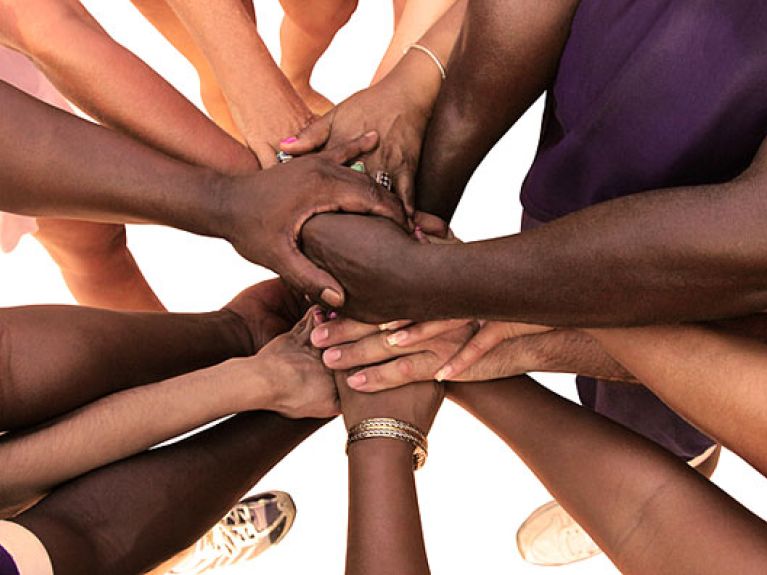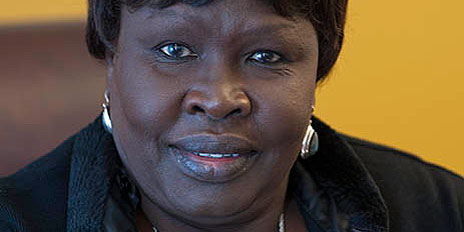“An important event in African History”
On 25 May, the countries of the African Union celebrate the signing of its charter in 1963. An interview with Sitona Abdalla Osman, Ambassador of the Republic of South Sudan in Germany.

Freedom, independence and change: 32 African countries signed the charter of what was eventually to become the African Union on 25 May 1963 in Addis Ababa, Ethiopia. Traditionally, the Group of African Ambassadors Accredited to the Federal Republic of Germany also celebrate this day together. This year, on 23 May, the Embassy of the Republic of South Sudan held an official event in Berlin with over 600 guests which focused on the subject “The African Continent – Challenges and Opportunities”. In an interview, Sitona Abdalla Osman, Ambassador of the Republic of South Sudan, speaks about the importance of this day and the challenges facing the countries of Africa today – also with regard to the G20 summit and the Marshall Plan with Africa.

Your Excellency, African Union Day on the 23rd of May celebrates a significant event in African history. Why do you consider it important to celebrate this day in Germany too?
African ambassadors to the Federal Republic of Germany celebrate this day annually to commemorate the formation of the Organisation of African Unity (OAU), a predecessor organisation of the present African Union, in 1963, when 32 African countries signed a charter in Addis Ababa with the objective of bringing change, freedom and independence to African countries. Our celebration is an opportunity to acknowledge the achievements of the peoples and governments of Africa since the time of the organisation’s foundation.
How did you celebrate this special day in Germany?
The day was celebrated under the theme “The African Continent – Challenges and Opportunities”. The celebration started with a seminar bringing together panellists from African organisations, the diaspora, German government officials and representatives of academia; they talked about the challenges and the opportunities for Africa and expressed a very diverse and wide range of opinions that generated many questions from the audience.
Over 600 people attended, including representatives from German ministries, companies, non-governmental organisations, the African Union, parliament, academia, the media, the diaspora African community and African students here in Germany.
The second session was a cultural show with African music from Algeria. An African traditional dress show with participants from Côte D’Ivoire, Egypt, Ethiopia Madagascar and South Sudan was also held, followed by the presentation of dance videos from all over the African continent. The event ended with a reception where traditional food from around 22 African countries was offered.
One topic of the event was German initiatives with Africa, such as the Marshall Plan with Africa. How exactly can Germany and the African continent benefit from increased cooperation? And what are your hopes in this regard for the German G20 presidency in 2017?
We now have a great chance for African countries to promote good relations with the German people, especially during the golden opportunity of the German G20 presidency in 2017, where Africa is one of the top priorities on the G20 agenda. The German G20 agenda focuses on three main pillars: building resilience, improving sustainability and assuming responsibility.
For us Africans that means we have to accept responsibility for the development of Africa, because it will depend on African leaders and the African people. We appreciate this initiative, but it has to be with Africa and not for Africa, and it has to be in accordance with the individual priorities of each country in Africa.

